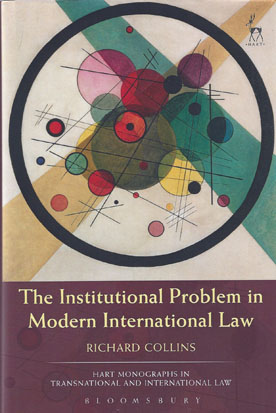
Since the end of the nineteenth century, international law has been widely understood as an autonomous legal order, similar in nature if, importantly, not in structure to law within the state.
Whilst this understanding has bolstered the professional identity of international legal practice, it has come at the price of a perpetual sense of structural deficiency over the decentralised institutional nature of the international legal order.
To maintain the claim to legal autonomy, it has been common to read into the international legal order forms of normative hierarchy accompanied by functional constitutional substitutes (of a legislative, executive, or adjudicative nature).
In this book, the author engages critically with the self-defeating nature of these constitutional substitutes, explaining the irresolvable nature of this "institutional problem" as well as the shortcomings of the kind of Rule of Law idealism from which the problem arises in the first place.
Instead, the book sets out a plea for international lawyers to understand the purpose and potential of international law on its own terms, whilst at the same time challenging the coherence of the domestic legal paradigm against which its institutional structures are commonly found wanting.